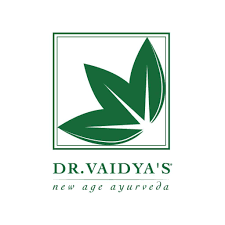 According to Ayurveda, a number of factors determine skin health and youthfulness. These include proper moisture balance (Kapha in balance), effective functioning of the metabolic mechanisms that co-ordinate all the various chemical and hormonal reactions of the skin (Pitta in balance) and efficient circulation of blood and nutrients to the different layers of the skin (Vata in balance). The health of the following three dhatus (types of body tissue) are especially reflected in the skin: nutritional fluid (Rasa), blood (Rakta) and muscle (Mamsa). Rasa supports all the body tissues, particularly keeping the skin healthy, Rakta, in association with liver function, helps detoxify the skin, while Mamsa provides firmness to the skin.
According to Ayurveda, a number of factors determine skin health and youthfulness. These include proper moisture balance (Kapha in balance), effective functioning of the metabolic mechanisms that co-ordinate all the various chemical and hormonal reactions of the skin (Pitta in balance) and efficient circulation of blood and nutrients to the different layers of the skin (Vata in balance). The health of the following three dhatus (types of body tissue) are especially reflected in the skin: nutritional fluid (Rasa), blood (Rakta) and muscle (Mamsa). Rasa supports all the body tissues, particularly keeping the skin healthy, Rakta, in association with liver function, helps detoxify the skin, while Mamsa provides firmness to the skin.
How your dosha affects your skin
A skin with predominant vata dosha is dry and vata imbalance can produce blackheads and hyperpigmentation. Dryness in the body can cause an overproduction of oil, clogging the skin. For vata skin to stay youthful, skin care products that can nourish and rehydrate the skin should be used, otherwise it may be susceptible to wrinkles and premature aging. Warm oil self-massage and all natural moisturizers may help.
Bhrajak pitta which is a sub type of pitta is responsible for the luster of the skin and its imbalance may cause in the loss of luster, inflammation, and toxins to accumulate, resulting in red, painful pimples. Skin with pitta predominance maybe dry or hydrated and sweating is more. For pitta skin, good sunscreens for protection from the sun, and good facial skin oils should be used daily. Exposure of delicate sensitive skin for extended periods of time to steam/heat should be avoided.
Kapha dominant skin is well hydrated, and oily. A kapha imbalance can cause whitish discoloration, coldness, and dryness of skin. For kapha skin, a daily warm oil massage and cleansing of skin should be performed.

Concept of healthy skin in Ayurveda
Vayasthapana
The ingredient that nourishes the skin and ensures its optimum physiological functions and has an overall anti-aging property is called vayasthapana, which literally means ‘maintaining youthfulness’ or ‘arresting age’. Vayasthapana herbs give overall support to the skin by keeping all three doshas in balance. Centella asiatica (mandukparni) is the foremost vayasthapana herb with anti-aging effects; one of its many properties is to enhance collagen synthesis.

Varnya
An important group of herbs called Varnya, has the ability to enhance the radiance or complexion of the skin. If the skin does not have a healthy glow, or varnya quality, then it is not considered youthful in Ayurveda. Varnya herbs include sandalwood (chandana), vetiver (khas), Indian madder (manjishtha), and Indian sarsapilla (sariva).
Vranaropana
Vranaropana herbs enhance deeper healing abilities in the skin. Vranaropana herbs include daruharidra (Indian barberry), and raktachandana (red sandalwood), they are known for their ability to heal wounds.
Tvachya
These herbs support moisture balance and provide overall nourishment to the skin. Orange peel and rose petal is the most widely used. Grapefruit extract and natural sources of Vitamins A, C and E nourish the skin.
Shothahara
By protecting the skin against allergens, inflammatory substances, chemicals and even stress, this group of herbs provide the anti-inflammatory effect. Rose petal, and Aloe Vera are Shothahara herbs with appropriate anti-inflammatory properties.
Tvagrasayana
In Ayurveda the concept of anti-aging is embodied in rasayana. Tvagrasayana means ‘skin rasayana’, which refers to enhanced and powerful herbal formulae designed to prevent sickness and aging of the skin. Amalaki (amala), a potent antioxidant, rich in Vitamin C, tannins and gallic acid, is foremost amongst the anti-aging drugs (vayasthaprana).
Diet
Eat more green veggies, if you’re having trouble with your skin. It is suggested to reduce sugary, spicy, and sour foods, as they can increase heat and inflammation in the body, aggravating pitta. Instead, consume bitter, astringent vegetables, like asparagus, cabbage, and spinach.

Stay hydrated. Drinking six to eight glasses of water a day is the general rule for good health and is great for the skin. Consuming milk with turmeric (haridra) is suggested to be beneficial for skin. Do not consume curd in the night, curd obstructs the free flowing channels (strotas) in your body.
Lifestyle
Stress does not only have an impact on your overall health, leaving you feeling run down, but it can also cause outbreaks of acne and start to leave you with permanent wrinkles or frown lines. Reducing and maintaining your stress levels isn’t always as easy as it sounds. However, good exercises to help fight stress as part of your everyday routine include meditation, regular exercise and taking time each day for yourself.
Exposure to sun rays for a long time may cause skin ageing and lead to serious skin disorder. A long hot shower damages the skin cells leading to loss of sensation. Washing your face frequently is the best way to keep your skin free from pollution.
Signs of a healthy skin
Richness of rasa dhatu represents richness of skin, therefore, person with healthy skin must have well-nourished rasa dhatu. In Charak Samhita, healthy person’s skin is well coated, smooth, soft, clean, sensitive, lustrous, and is free from any skin disease.


















 As you know that weather can have a great impact on your health, in winters the most common disease that a person suffers from is the common cold. During the rainy season it is typhoid or diarrhoea, but did you know that the number of cases of typhoid or diarrhoea, increases during summers? According to the survey, people suffer more from UTI in summers than in any season.
As you know that weather can have a great impact on your health, in winters the most common disease that a person suffers from is the common cold. During the rainy season it is typhoid or diarrhoea, but did you know that the number of cases of typhoid or diarrhoea, increases during summers? According to the survey, people suffer more from UTI in summers than in any season.









